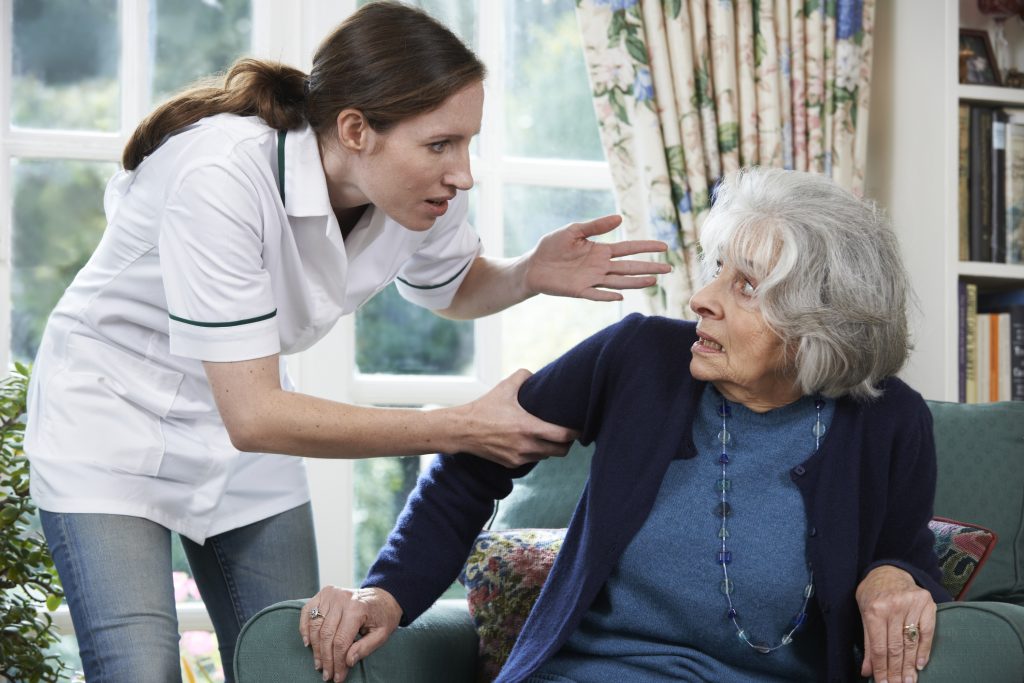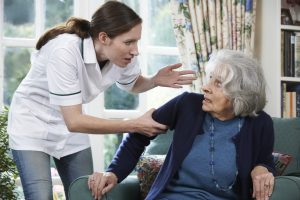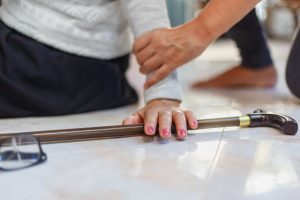Elderly abuse is a grave issue that demands immediate attention. Sadly, an estimated 1 in 6 older adults globally experience some form of abuse each year, according to the World Health Organization (WHO). Rates of abuse of older people are specifically high in institutions like nursing homes, with 2 in 3 staff members reporting that they have committed abuse in the last year. (1)
Understanding the signs and knowing what to do is important for protecting vulnerable residents. This guide outlines the critical steps to help you report elderly abuse in a nursing home effectively.
Pinpoint the Signs of Abuse
The first step in confronting elderly abuse is to identify its signs. Abuse often takes many forms, including physical, emotional, sexual, financial, and neglect. You might notice unexplained injuries like bruises or burns, sudden changes in mood or behavior, or signs of dehydration and malnutrition. Pay attention to how staff members interact with their elderly patients, too; dismissive or overly aggressive behavior can be a red flag.
A systematic review of self-reported abuse among nursing home residents uncovered concerning prevalence rates: psychological abuse (33.4%), physical abuse (14.1%), financial exploitation (13.8%), neglect (11.6%), and sexual abuse (1.9%). Moreover, data from the National Center on Elder Abuse reveals that elder abuse is mostly underreported— for every reported case, as many as 24 cases may go unreported. Recognizing the problem early on can save lives. (2)
Document Evidence
Once you suspect abuse, it’s vital to document evidence. So, take complete notes of your observations, including dates, times, and descriptions of incidents. If you find physical injuries, take photos (if permissible) to back up your claims.
Also, maintain a record of any conversations with staff or management where you raised your concerns. This documentation not only strengthens your report but is also crucial when seeking legal help for elder abuse to ensure your claims are taken seriously. Without concrete evidence, substantiating your concerns can be difficult.
Speak to the Nursing Home Management
Before escalating the issue, approach the assisted living facility or nursing home’s management team. Share your concerns and provide the evidence you’ve gathered. The management is required to take allegations of abuse seriously and to conduct an internal investigation. Often, addressing the issue at this stage can lead to a resolution without having to take further action.
Be direct yet respectful in your communication. For instance, you could say, “I’ve noticed some worrying signs regarding [specific resident’s name]. I’d like to talk about these and see how we can ensure their safety.” This approach promotes a collaborative effort to protect the elderly resident while holding the facility accountable.
File a Report
If management fails to take adequate steps or if the situation is urgent, report the abuse to external authorities. Contact Adult Protective Services (APS) in your state. APS is the primary agency that investigates elder abuse reports and provides intervention when necessary. You may find their contact details through your local Department of Health and Human Services.
In addition to APS, you can file a complaint with your state’s long-term care ombudsman. Ombudsmen are advocates for nursing home residents and can help mediate disputes, investigate complaints, and push for corrective actions.
Contact Law Enforcement if Needed
In moments where abuse involves immediate risk or criminal activity, call local law enforcement. Physical assault, sexual abuse, and theft are crimes that need police intervention. Authorities have the command to ensure the safety of the victim and may begin criminal investigations if necessary.
Keep in mind that your decision to involve law enforcement is vital in grave situations. Failure to act could leave the victim in continued danger, perpetuating a cycle of abuse.
Alert Licensing and Certification Agencies
Nursing homes are regulated by state and federal agencies, which oversee compliance with care standards. Reporting elderly abuse to these agencies ensures accountability and prevents future incidents. For example, the Centers for Medicare & Medicaid Services (CMS) monitor federally funded facilities and investigate serious allegations.
When submitting a complaint, include all evidence you’ve gathered. Note any actions you’ve already taken, too, including contacting APS or law enforcement. This ensures a thorough investigation and appropriate corrective measures.
Support the Victim
Elderly abuse can leave victims feeling frightened, isolated, and helpless. Your support can make a genuine difference. So, give them emotional reassurance and let them know that they’re not alone. Encourage them to express their feelings and validate their experiences, too.
Better yet, assist the victim in connecting with support services. Organizations like the National Center on Elder Abuse and elder advocacy groups provide resources for victims and their loved ones. These services may include counseling, legal assistance, and temporary housing if moving is needed.
Educate Yourself and Others
Lastly, it helps to know the rights of nursing home residents under federal and state laws. Here’s an example: the Nursing Home Reform Act of 1987 guarantees residents the right to live free from abuse and nursing home neglect. Convey this knowledge to others to raise awareness and prevent future incidents. (3)
Community involvement also plays a critical role. Consider volunteering with local elder care organizations, attending seminars, and advocating for stricter policies to safeguard vulnerable adults. Every effort counts toward creating a safer environment for elderly individuals.
Wrapping Up
Combating elder abuse in nursing homes necessitates vigilance, empathy, and decisive action. By determining the indicators, documenting evidence, and reporting to the appropriate authorities, you can safeguard residents and hold offenders responsible.
Supporting victims and advocating for systemic reforms can also help ensure a safer future for the aging population. Together, everyone can make nursing homes a place of care and dignity rather than neglect and harm.
References:
- “Abuse of older people”, Source: https://www.who.int/news-room/fact-sheets/detail/abuse-of-older-people
- “Prevalence of Elder Mistreatment”, Source: https://ncea.acl.gov/prevalenceofeldermistreatment#gsc.tab=0
- “US: Concerns of Neglect in Nursing Homes”, Source: https://www.hrw.org/news/2021/03/25/us-concerns-neglect-nursing-homes






















